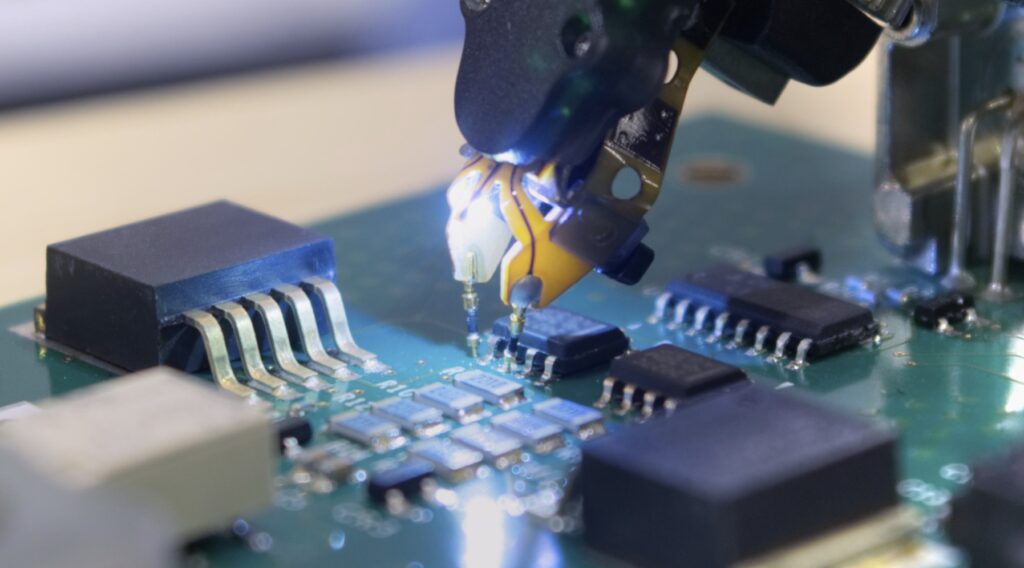The field of electronic design is ever-evolving, driven by advancements in technology and growing demand for innovative and efficient products. As companies race to bring their ideas to market, they often face challenges in creating reliable, high-performance electronic systems. This is where electronic design consulting becomes a crucial resource. Consultants provide expertise, tools, and solutions that can help businesses navigate the complexities of design and production. This article explores when and why you should consider hiring an electronic design consultant.
Understanding Electronic Design Consulting
Electronic design consulting involves hiring experts to assist in the conceptualization, design, prototyping, testing, and manufacturing of electronic systems. These consultants are typically engineers or firms with extensive experience in hardware, software, and system integration. They bring a wealth of knowledge and resources that can help businesses overcome technical hurdles and optimize their designs.
When to Hire an Electronic Design Consultant
1. Limited In-House Expertise
Startups and small to medium-sized businesses often lack a full team of specialized engineers. If your team does not have experience in areas such as PCB design, signal integrity, embedded systems, or power electronics, a consultant can bridge the gap.
2. Tight Deadlines
Time-to-market is a critical factor in today’s competitive landscape. If your internal team is stretched thin or unable to meet project timelines, a consultant can expedite the design and development process while maintaining quality standards.
3. Complex Design Challenges
Innovative projects often involve unique challenges, such as designing for harsh environments, implementing advanced communication protocols, or achieving high power efficiency. Consultants specialize in tackling these issues with creative and effective solutions.
4. Regulatory Compliance Requirements
Electronic products often need to comply with regulatory standards like FCC, CE, or RoHS. Consultants are well-versed in these requirements and can ensure your design meets all necessary certifications.
5. Cost Optimization
Designing for manufacturability and cost-efficiency is crucial, especially for high-volume production. Consultants can help reduce costs through component selection, streamlined layouts, and efficient use of resources.
6. Need for Advanced Tools and Technologies
Electronic design often requires specialized tools for simulation, analysis, and prototyping. Consultants have access to cutting-edge software and hardware tools, enabling more accurate and efficient designs.
Why Hire an Electronic Design Consultant
1. Access to Specialized Knowledge
Consultants bring deep expertise in their respective fields. Whether it’s RF design, IoT integration, or FPGA development, they provide the technical know-how that ensures your project’s success.
2. Faster Problem Solving
Experienced consultants have likely encountered and resolved challenges similar to yours. Their familiarity with best practices and potential pitfalls allows them to address issues quickly and effectively.
3. Cost Savings
While hiring a consultant involves an upfront cost, it can save money in the long run by reducing errors, preventing costly redesigns, and accelerating the development timeline.
4. Scalability and Flexibility
Consultants offer scalability, allowing you to bring in expertise as needed without committing to full-time staff. This flexibility is particularly valuable for startups and companies with fluctuating project demands.
5. Objective Perspective
An external consultant provides an unbiased perspective, offering fresh ideas and solutions that might not arise within your internal team.
6. Enhanced Innovation
With their exposure to various industries and technologies, consultants can introduce innovative approaches and state-of-the-art solutions to your project.

The Consulting Process
1. Initial Assessment
The process begins with understanding your project’s goals, challenges, and requirements. Consultants will evaluate your current resources and identify gaps in expertise or tools.
2. Proposal and Planning
Based on the assessment, the consultant will propose a plan outlining the scope of work, timeline, and deliverables. This step ensures clear expectations and alignment with your objectives.
3. Design and Development
During this phase, consultants work on creating schematics, PCB layouts, firmware, or software as required. They may also conduct simulations and prototyping to validate the design.
4. Testing and Validation
Consultants perform rigorous testing to ensure the design meets functional, performance, and regulatory standards. Any issues identified are resolved before finalizing the design.
5. Handover and Support
Once the project is complete, consultants provide documentation, training, and ongoing support as needed. This ensures a smooth transition to your in-house team or manufacturing partner.
Industries That Benefit from Electronic Design Consulting
1. Consumer Electronics
From smartphones to wearable devices, consultants help create compact, energy-efficient, and feature-rich products.
2. Industrial Automation
Consultants design robust systems for factory automation, robotics, and process control, often tailored to harsh industrial environments.
3. Healthcare
Medical devices require high reliability and strict compliance with standards like ISO 13485. Consultants ensure designs meet these rigorous demands.
4. Automotive
In automotive applications, consultants work on advanced driver-assistance systems (ADAS), electric vehicle (EV) components, and in-vehicle networking.
5. Telecommunications
Telecom solutions demand expertise in RF design, high-speed communication, and signal integrity, areas where consultants excel.
6. IoT and Smart Devices
Consultants assist in creating connected devices with low power consumption, seamless connectivity, and secure communication.
Choosing the Right Consultant
1. Evaluate Expertise
Look for consultants with proven experience in your industry and project type. Review their portfolio, certifications, and client testimonials.
2. Assess Communication Skills
Effective communication is key to a successful partnership. Ensure the consultant understands your needs and can explain technical concepts clearly.
3. Verify Tools and Resources
The consultant should have access to advanced tools and technologies relevant to your project.
4. Consider Flexibility and Availability
Choose a consultant who can adapt to your project’s timeline and is available for ongoing support if needed.
5. Compare Costs
While cost is a factor, prioritize value over the lowest price. A more experienced consultant may save you money through efficient and high-quality work.

Conclusion
Electronic design consulting is a valuable resource for companies looking to innovate, overcome challenges, and bring high-quality products to market efficiently. Whether you lack in-house expertise, face tight deadlines, or need to navigate regulatory requirements, a consultant can provide the knowledge and support you need. By understanding when and why to hire a consultant, you can make informed decisions that drive the success of your electronic design projects.
